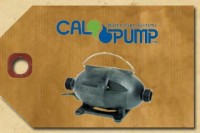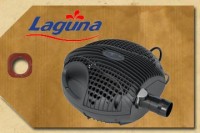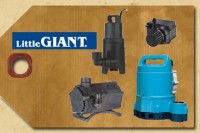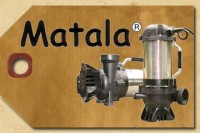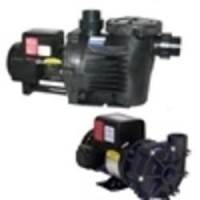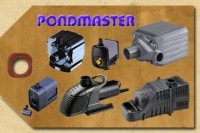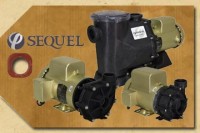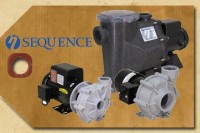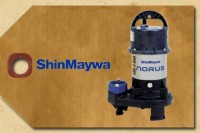|
Choosing the right water pump for your pond can make all of the difference in the world. Just because a pump may cost less to buy, it is not always the way to go. The most important thing to remember is the electrical usage when looking for a water pump for your pond. In order to maintain a healthy environment for your Koi pond or water garden, you MUST run your water pump through your filter 24 hours a day, 7 days a week. So it is important to pick the right water pump for your Koi pond or water garden. Water pumps have variances in electrical usage and electrical costs.
Pumps come in an array of models and sizes. We can help you select the best model and connecting equipment for your purposes.
Pumps are sized by gallons per hour (GPH) output at one foot of lift or height. Larger capacity pumps are rated by horsepower (hp).
It is recommended that the water in a basic pond be turned over *about* 1 times per hour. A 500-gallon pond should have at least a 500 Gallon Per Hour pump.
When sizing a pump for a pond there are a few other considerations.
How high will the pump have to lift water?
Will there be a waterfall, fountain or statuary?
Will there be filters?
All of these variables reduce the amount of flow, which could affect water quality and clarity.
The Benefits of Submersible Pond Pumps.
For understandable reasons, a submersible pump derives its name because it is designed to be placed in the pond, and submerged under the water.
Submersible Pond Pumps are the easiest of all pumps to install. Installations require no more than attaching a hose to the waterfall, or to a submersible filter, and then just drop the submersible pump in the water and plug it in - and you’re ready to do.
Submersible Pond Pumps range in size, or gallons per hour, from 50 GPH all the way up to 50,000 gallons per hour, but for most ponds - pumps anywhere from 350 GPH to 4000 GPH will be sufficient.
The Benefits of External Pond Pumps.
First, external pond pumps can be far more energy efficient. However be careful not to include a typical swimming pool or spa pump into this category as pool and spa pumps can be huge energy hogs. As a general guide always check the amperage of the pump you are considering, anything drawing over 10 amps will also draw a significant amount of cash from your pocket every month in electrical costs.
The external pumps we are referencing are designed specifically for ponds and water gardens, and are engineered for energy efficiency.
For comparison purposes, a typical 4000 GPH (gallons per hour) submersible pond pump will typically draw between 10 amps all the way up to 15 amps, depending on the brand. In contrast, a comparably rated external pond pump will deliver 4000 GPH (gallons per hour) and only draws 2.3 amps. The resulting difference in energy consumption is 75% less than that of the submersible pond pumps.
When you start getting into larger ponds, 1000 gallons up to 20,000 and above - it's usually a good idea to look into these more energy efficient pumps.
External pond pumps are almost always better when you are using a pressurized external filter, as submersible pumps are not designed to handle all the back pressure.
Other benefits of using an external pump include:
Easy to clean without getting your hands messy
Come with a removable leaf trap which clog less often
Easy to hook up to bottom drains or surface skimmers
Generally external pond pumps last longer, and are easier to repair
|

